DS Automobiles DS 7 vs smart #3 – Performance, range & efficiency compared
Everyday use, family trips or long-distance drives – here’s where the differences show.
Discover whether DS Automobiles DS 7 or smart #3 fits your lifestyle better.
Costs and Efficiency:
Price and efficiency are often the first things buyers look at. Here it becomes clear which model has the long-term edge – whether at the pump, the plug, or in purchase price.
smart #3 has a distinct advantage in terms of price – it starts at 34700 £, while the DS Automobiles DS 7 costs 41900 £. That’s a price difference of around 7175 £.
As for range, the smart #3 performs convincingly better – achieving up to 455 km, about 390 km more than the DS Automobiles DS 7.
Engine and Performance:
Power, torque and acceleration are the classic benchmarks for car enthusiasts – and here, some clear differences start to show.
When it comes to engine power, the smart #3 has a to a small extent edge – offering 428 HP compared to 360 HP. That’s roughly 68 HP more horsepower.
In acceleration from 0 to 100 km/h, the smart #3 is convincingly quicker – completing the sprint in 3.70 s, while the DS Automobiles DS 7 takes 5.70 s. That’s about 2 s faster.
In terms of top speed, the DS Automobiles DS 7 performs evident better – reaching 235 km/h, while the smart #3 tops out at 180 km/h. The difference is around 55 km/h.
There’s also a difference in torque: smart #3 pulls a bit stronger with 584 Nm compared to 520 Nm. That’s about 64 Nm difference.
Space and Everyday Use:
Cabin size, boot volume and payload all play a role in everyday practicality. Here, comfort and flexibility make the difference.
Both vehicles offer seating for 5 people.
In curb weight, DS Automobiles DS 7 is minimal lighter – 1651 kg compared to 1780 kg. The difference is around 129 kg.
In terms of boot space, the DS Automobiles DS 7 offers evident more room – 555 L compared to 370 L. That’s a difference of about 185 L.
In maximum load capacity, the DS Automobiles DS 7 performs clearly perceptible better – up to 1750 L, which is about 590 L more than the smart #3.
When it comes to payload, smart #3 barely noticeable takes the win – 450 kg compared to 424 kg. That’s a difference of about 26 kg.
Who wins the race?
The smart #3 proves to be outperforms in nearly all aspects and therefore becomes our DriveDuel Champion!
smart #3 is the better all-rounder in this comparison.
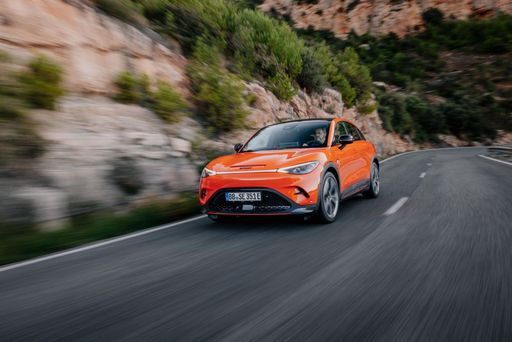
smart #3
DS Automobiles DS 7
The DS 7 stands out with its striking design and luxurious comfort, making it a true embodiment of French elegance in the SUV segment. Inside, the cabin showcases a blend of high-quality materials and innovative features that cater to both driver and passenger needs. With its impressive road presence and refined driving dynamics, the DS 7 promises a captivating driving experience that doesn't compromise on style.
details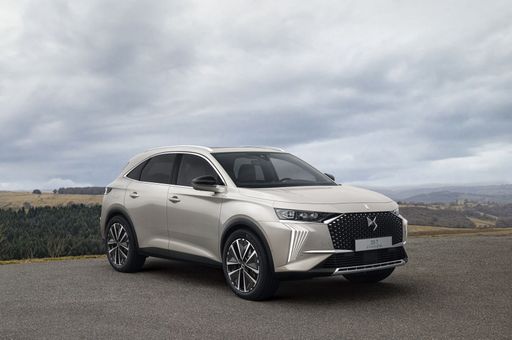 @ media.stellantis.com
@ media.stellantis.com
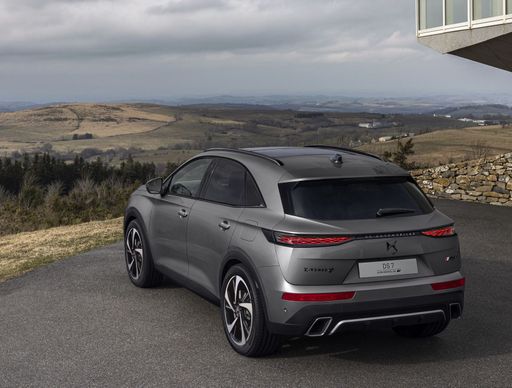 @ media.stellantis.com
@ media.stellantis.com
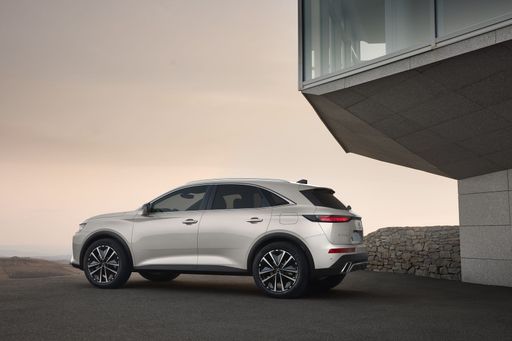 @ media.stellantis.com
@ media.stellantis.com
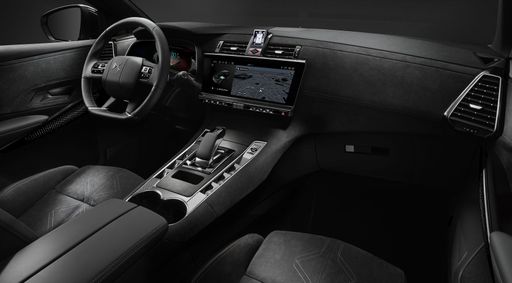 @ media.stellantis.com
@ media.stellantis.com
smart #3
The Smart #3 represents a bold evolution in urban mobility, merging sleek design with sustainability. This compact electric SUV boasts a modern silhouette and advanced technology features that make city driving both efficient and enjoyable. With its spacious interior and innovative connectivity options, the Smart #3 is poised to redefine the expectations for eco-friendly urban transport.
details @ media.smart.com
@ media.smart.com
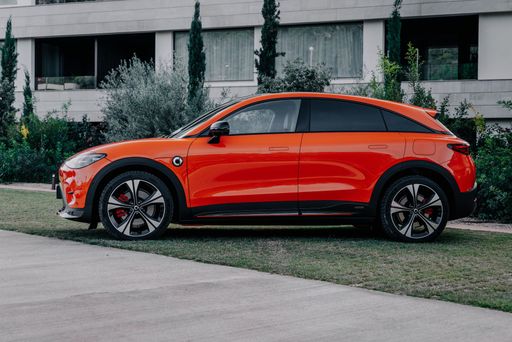 @ media.smart.com
@ media.smart.com
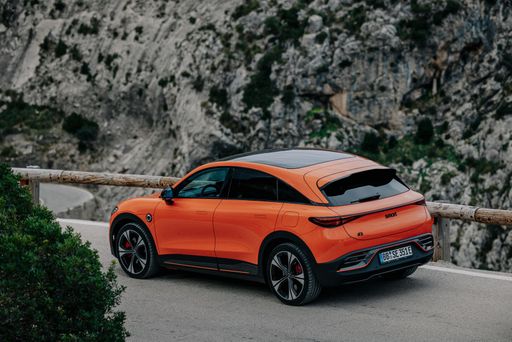 @ media.smart.com
@ media.smart.com
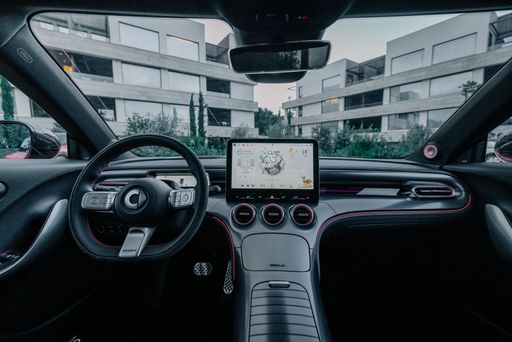 @ media.smart.com
@ media.smart.com
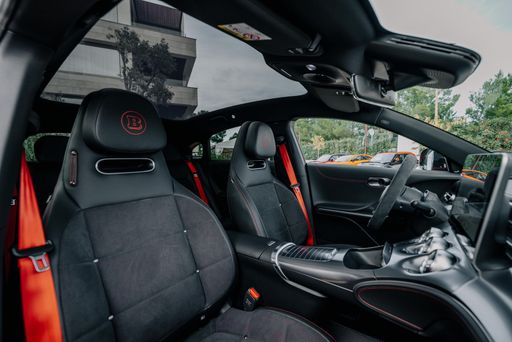 @ media.smart.com
@ media.smart.com
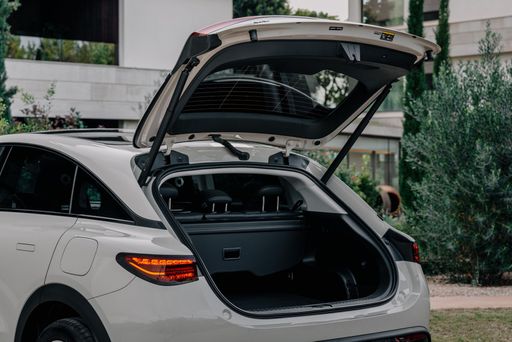 @ media.smart.com
@ media.smart.com

|

|
|
|
|
Costs and Consumption |
|
|---|---|
|
Price
41900 - 59300 £
|
Price
34700 - 45800 £
|
|
Consumption L/100km
1.3 - 5.5 L
|
Consumption L/100km
-
|
|
Consumption kWh/100km
-
|
Consumption kWh/100km
16.3 - 17.6 kWh
|
|
Electric Range
50 - 65 km
|
Electric Range
325 - 455 km
|
|
Battery Capacity
12.90 kWh
|
Battery Capacity
47 - 62 kWh
|
|
co2
30 - 145 g/km
|
co2
0 g/km
|
|
Fuel tank capacity
43 - 55 L
|
Fuel tank capacity
-
|
Dimensions and Body |
|
|---|---|
|
Body Type
SUV
|
Body Type
SUV
|
|
Seats
5
|
Seats
5
|
|
Doors
5
|
Doors
5
|
|
Curb weight
1651 - 2002 kg
|
Curb weight
1780 - 1910 kg
|
|
Trunk capacity
555 L
|
Trunk capacity
370 L
|
|
Length
4593 mm
|
Length
4400 mm
|
|
Width
1891 mm
|
Width
1844 mm
|
|
Height
1625 mm
|
Height
1556 mm
|
|
Max trunk capacity
1750 L
|
Max trunk capacity
1160 L
|
|
Payload
398 - 424 kg
|
Payload
419 - 450 kg
|
Engine and Performance |
|
|---|---|
|
Engine Type
Diesel, Plugin Hybrid
|
Engine Type
Electric
|
|
Transmission
Automatic
|
Transmission
Automatic
|
|
Transmission Detail
Automatic Gearbox
|
Transmission Detail
Reduction Gearbox
|
|
Drive Type
Front-Wheel Drive, All-Wheel Drive
|
Drive Type
Rear-Wheel Drive, All-Wheel Drive
|
|
Power HP
130 - 360 HP
|
Power HP
272 - 428 HP
|
|
Acceleration 0-100km/h
5.7 - 11.9 s
|
Acceleration 0-100km/h
3.7 - 5.8 s
|
|
Max Speed
195 - 235 km/h
|
Max Speed
180 km/h
|
|
Torque
300 - 520 Nm
|
Torque
343 - 584 Nm
|
|
Number of Cylinders
4
|
Number of Cylinders
-
|
|
Power kW
96 - 265 kW
|
Power kW
200 - 315 kW
|
|
Engine capacity
1499 - 1598 cm3
|
Engine capacity
-
|
General |
|
|---|---|
|
Model Year
2024 - 2025
|
Model Year
2023
|
|
CO2 Efficiency Class
E, B
|
CO2 Efficiency Class
A
|
|
Brand
DS Automobiles
|
Brand
smart
|
What drive types are available for the DS Automobiles DS 7?
The DS Automobiles DS 7 is available as Front-Wheel Drive or All-Wheel Drive.
The prices and data displayed are estimates based on German list prices and may vary by country. This information is not legally binding.
